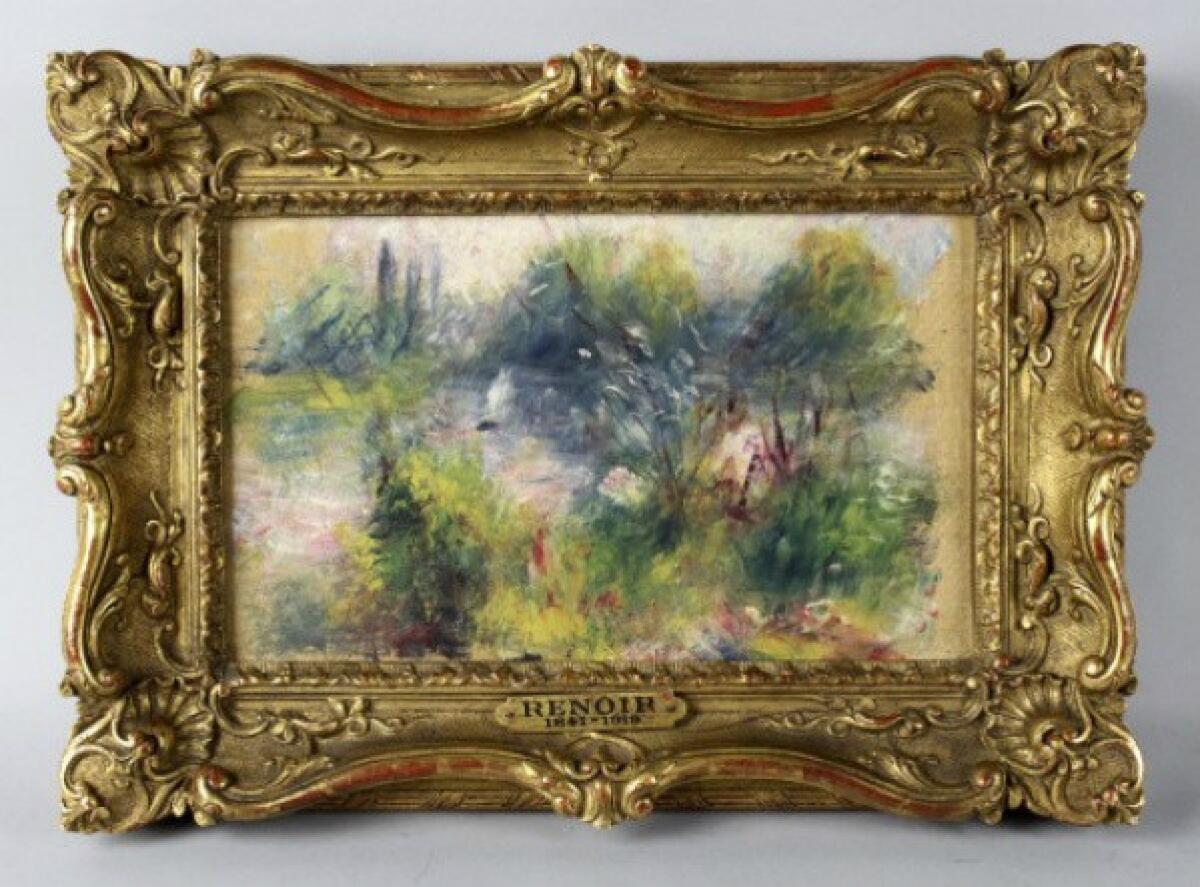Museum claims Renoir bought for $7 at flea market was stolen in 1951

- Share via
A small Pierre-Auguste Renoir landscape painting has set off a dispute between a major American art museum and a woman who said she purchased the painting for just $7 at a flea market in 2009.
The Baltimore Museum of Art said the Renoir was stolen from its premises in 1951. A court hearing is scheduled for Friday to determine whether the museum or Virginia resident Martha Fuqua is the rightful owner of the painting.
Renoir’s 1879 painting “Paysage Bords de Seine” depicts a lush, verdant landscape on the banks of the Seine. The painting, which is smaller than standard letter-size paper, has been seized by the FBI, which has estimated its value at $22,000, according to reports.
PHOTOS: Best art moments of 2013 | Christopher Knight
Fuqua had attempted to sell the painting at an auction, which caught the museum’s attention. The museum contends that it has documents proving that a donor had bequeathed the work to the museum and that the painting belongs to museum even if Fuqua did buy it at a flea-market sale.
A museum document indicates that the Renoir was believed to have been stolen while on exhibit in November 1951.
The Baltimore Museum of Art has requested summary judgment in the case. If a judge doesn’t grant the museum’s request, a court trial is expected to begin Jan. 15.
Fuqua’s veracity has been called into question in the case. The Washington Post cited friends of Fuqua who said they remember seeing the painting before the claimed flea market purchase. They said they saw the painting at the Virginia home of her mother, Marcia Fouquet, who died in September.
ALSO:
The most fascinating arts stories of 2013
Alexander Calder heirs see their lawsuit against dealer dismissed
Legal win for California family seeking to recover Pissarro painting
More to Read
The biggest entertainment stories
Get our big stories about Hollywood, film, television, music, arts, culture and more right in your inbox as soon as they publish.
You may occasionally receive promotional content from the Los Angeles Times.











